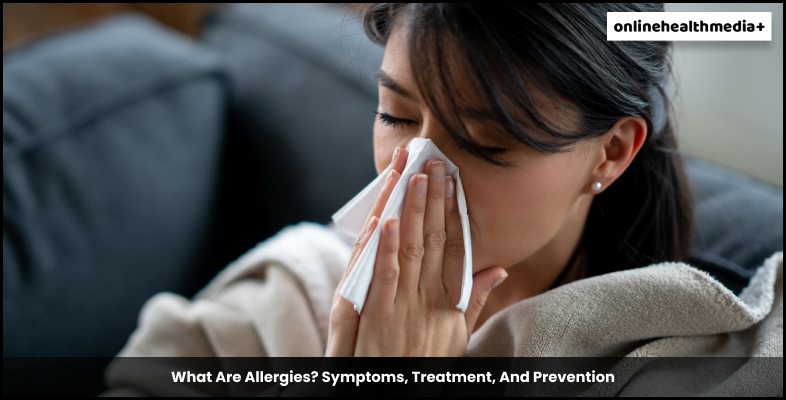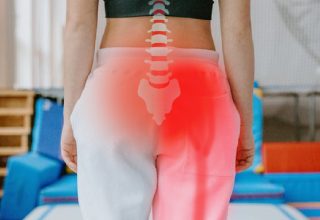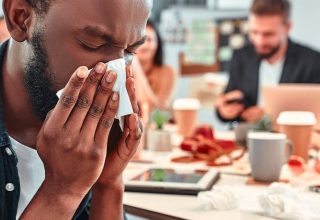What Are Allergies? Symptoms,Treatment, And Prevention
If you ask any random person on the streets about having any allergies or not, they will most probably say yes. It is one of the most common forms of physical difficulty that people globally face every day. Every day, people sneeze and cough in the streets after the dust, and smoke gets swept up in the year. Even in restaurants and diners, you will see people sneezing with a handkerchief covering their noses and mouths. They will also most likely go to the bathroom or the hospital later.
So what are allergies? What are these negative physical responses our body makes when we contact with some specific substance? Read on to find out more about allergies and their causes, symptoms, treatment, and prevention strategies.
What Are Allergies?
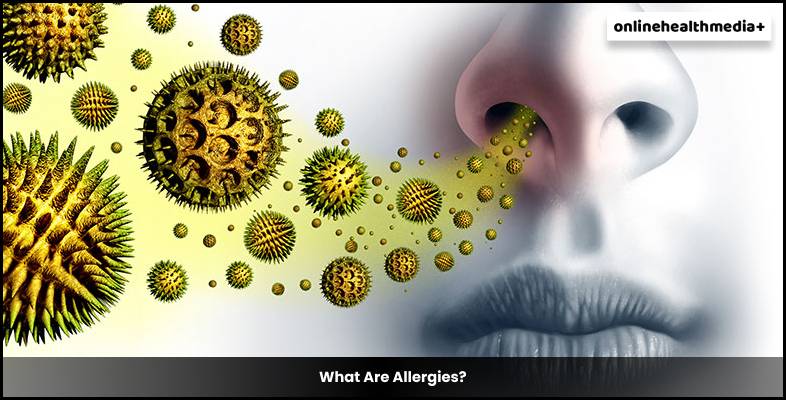
Allergies are adverse reflex reactions our body makes towards specific substances. These objects that our body dislikes are known as allergens. Such substances are generally harmless to most people. However, it can become deadly for some too. The extent of the effect of allergens differs from person to person.
When an allergen enters your body or comes in contact with it, your body will react negatively to it, making you go through many painful and uncomfortable situations. Most of these uncomfortable feelings are caused by your body’s immune system identifying these allergens as harmful invaders.
Types Of Allergens
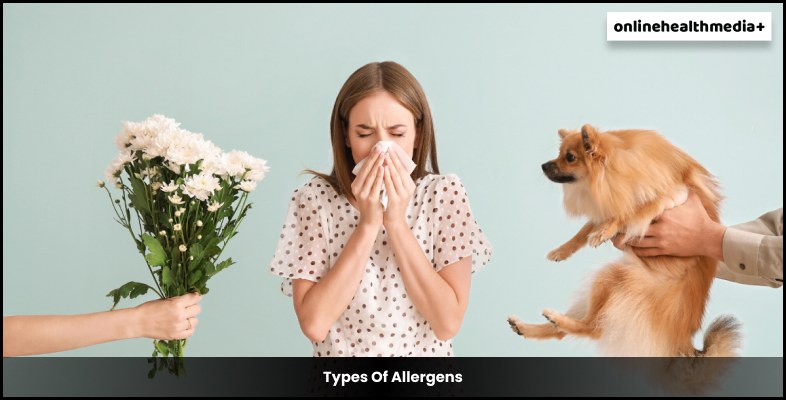
There are several types of allergens, many of which may seem like harmless substances to you. But in reality, these allergens can cause a lot of trouble for allergic people. Some of the most common types of allergens people are commonly allergic to are:
Pollen

Pollen from flowers is one of the most common allergens in this world. There are millions of people globally who suffer from allergic reactions after coming in contact with flower pollen. The most dangerous fact about pollen being an allergen is that it causes seasonal allergic rhinitis, a type of fever that stays for a short while. However, seasonal allergies still cause a lot of pain and discomfort for the allergic person.
Food

Various foods can act as allergens for many people. For example, if you see Hollywood movies, then you will find at least one kid in the entire film that suffers from food allergies to peanuts or peanut butter after eating a sandwich.
However, allergic reactions to food are more commonly found in kids than adults, with many allergies even waning off as they grow older. Abdominal pain is one of the most common symptoms of food allergies.
Dust

Dust and dust mites within it can spell danger for people allergic to dust. While many people say they are allergic to dust, they are allergic to dust mites – tiny insects that live on dust. These mites often stick to our skin, causing itching for most people. However, it can cause rashes and allergic rhinitis in allergic people, which can cause acne.
Animal Fur And Saliva
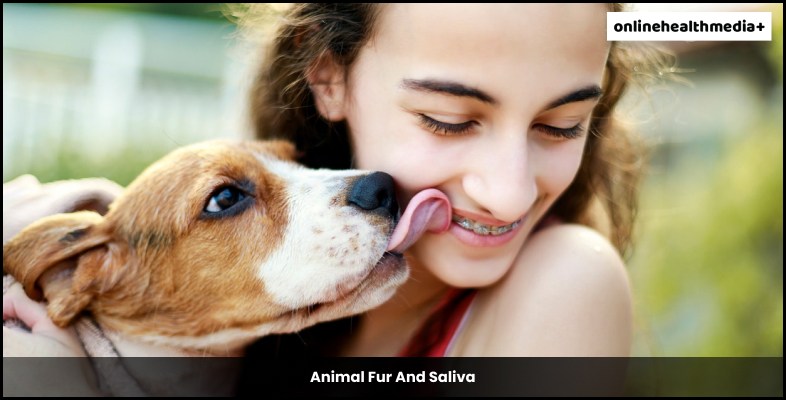
You must have friends or family members who are afraid of cats and dogs or hate them. If you know anyone who behaves like this in front of pets, there is a high chance they are allergic to them. Many people are allergic to pet hair or saliva, making them feel uncomfortable and sneeze a lot. Dog allergies are the most common in this regard.
Insect Stings
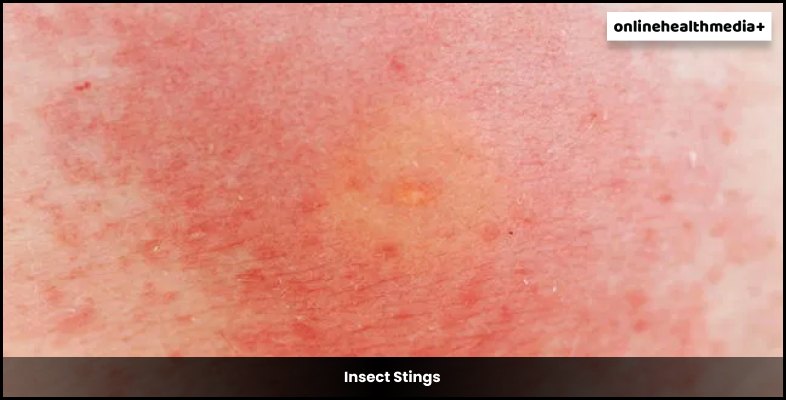
While pretty uncommon compared to the examples given above, many people are allergic to bites from insects. Commonly, many people are allergic to bee stings. While bee stings are painful on their own, allergic people face a whole lot of trouble like:
- Contraction of nasal pipe – leading to difficulty in breathing.
- Rash around the stung area.
- Massive swelling around the stung area.
- Difficulty swallowing food and water, accompanied by wheezing.
- Fever and anxiety.
Symptoms Of Allergies
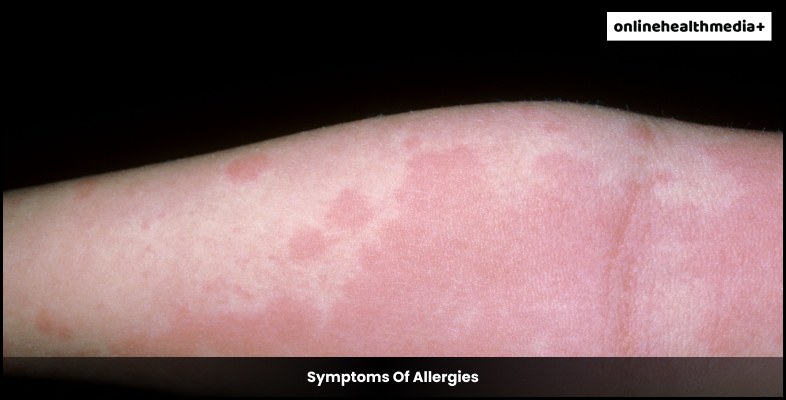
Some of the main symptoms of people suffering from allergies based on the allergen are:
Food And Drug Allergies
Some effects of allergic reactions toward food and medicinal drugs are:
- Swelling inside facial areas, like tongue, lips, throat, etc
- Anaphylaxis
- Fever (drug allergies)
- Appendicitis (severe cases)
Dust And Pollen Allergies
Some effects of allergic reactions toward pollen and dust are:
- Itchy skin rashes
- Sneezing
- Coughing
- Red, irritated eyes
- Breath shortness
Insect Sting Allergies
Some effects of allergic reactions toward insect stings are:
- Swelling around stung area
- Skin rashes
- Fever
- Wheezing
- Coughing
- Sneezing
Animal Allergies
Some effects of allergic reactions towards animal hair and saliva are:
- Sneezing
- Itchy skin rashes
- Red dry eyes
Treatment For Allergies
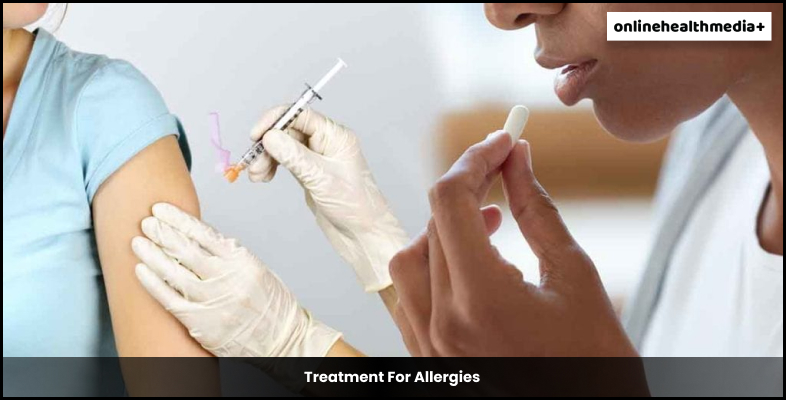
There are various treatment plans available for you if you ever suffer from an allergic reaction. While allergies do not go away very easily, the magnitude of the reactions can be controlled up to some extent with proper medications and non-medication treatment.
Some of the most commonly applied treatment plans for allergies are:
Medicative Treatment
Some of the medicines that are applied to treat allergic reactions are:
- Antihistamines: When people suffer from allergic reactions, their immune system makes them believe that certain substances are harmful for them. This causes your immunity system to fight back, releasing chemicals like histamines. Therefore, using antihistamines reduces the release of histamine after an allergic reaction.
- Eye Drops: If you suffer from any kind of eye irritation during an allergic reaction, then using prescribed eye drops sold above the counter will help reduce the irritation and pain in your eyes.
-
Adrenaline: Some severe cases of allergic reactions may cause your heartbeat and blood pressure to drop rapidly, causing symptoms similar to asthma attacks. This can be fatal if not treated immediately. Though this is not advised as the first option, use adrenaline shots to boost your blood pressure back up as a last resort.
- Combination therapies: Medicines like antihistamines can be combined with Intranasal corticosteroid nasal sprays (INCS). This is helpful when trying to overcome seasonal allergic rhinitis and in some special cases, severe back pain.
Non-medication Treatment
There is only one popular form of non-medication treatment for allergies, called allergen immunotherapy. This process involves coming in contact with allergens, the amount of which increases gradually over time. This is done to rewire your immunity system to believe that these allergens are not harmful.
How To Get Rid Of Allergies?
Unfortunately, there is no cure for allergies. While allergies are most common amongst children and teenagers, it sometimes goes away over time as we grow up. However, sometimes, these allergies stay back even when we have grown old. For such people, allergen immunotherapy is their best bet.
Frequently Asked Questions (FAQs):
Q1. What Are The 7 Allergy Symptoms?
The 7 most common allergy symptoms are:
- Sneezing
- Dry cough
- Wheezing
- Itchy rashes
- Swelling
- Red, dry eyes
- Nausea
Q2. Do Allergies Make You Cough?
Yes, allergies can make you cough (it’s either allergies or covid these days).
Q3. What Are 3 Types Of Allergies?
The three common types of allergies are:
- Food and drugs allergy.
- Animal and insect allergy.
- Dust and pollen allergy.
Q4. How Long Can Allergy Last?
How long do allergies last – it lasts for about a few hours to even a week, depending on the severity of the allergic reaction.
Conclusion
Allergies are one of the most common forms of physical condition that millions of people suffer from. When an allergic person comes in contact with an allergen like dust, pollen, pets, and even foods, they suffer from an allergic reaction that causes them to suffer from incessant sneezing, coughing, skin rashes, headache, etc. Even though allergies cannot be prevented or cured, there are various medications available for people to control allergic reactions. Even nonmedication treatments like allergen immunotherapy are also viable.
If you got to know a lot about allergies, then please check out our other articles on other diseases and health topics as well!
Read More:
- What To Know About Non-Invasive Body Contouring?
- 7 Benefits Of A Non-Surgical Body Contouring
- Are All Patients Adjusted The Same Way?
